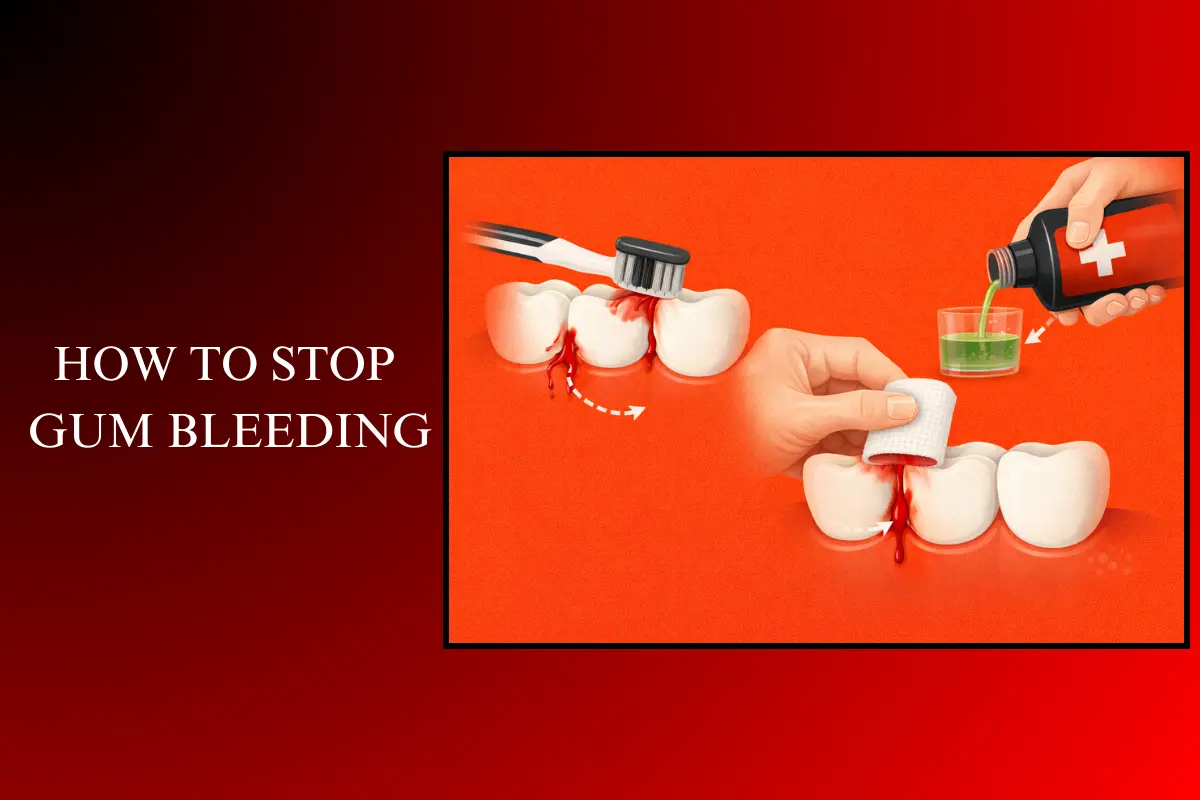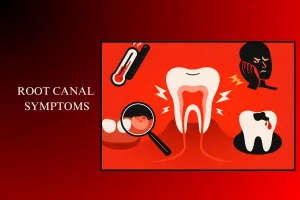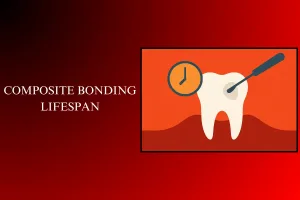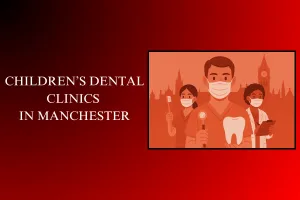Bleeding from the gums or a tooth injury is one of the most common dental emergencies. Whether it’s caused by trauma, gum disease, or a sudden injury while eating, it’s crucial to stop the bleeding quickly and know when to seek urgent dental help.
This guide explains exactly how to stop gum bleeding, what to avoid, and when it’s time to see a professional. If you’re in severe discomfort, Night and Day Emergency Dentist clinics in Manchester and Leeds are here to help — open 7 days a week, including evenings and weekends.
Short Summary
- Gum bleeding or tooth injury is a common dental emergency that requires prompt attention.
- Immediate first aid includes gentle saltwater rinses, applying pressure with gauze, using a cold compress, and keeping your head elevated.
- Common causes include trauma, aggressive brushing, gum disease, recent dental procedures, or certain medications and health conditions.
- Persistent, severe, or unexplained bleeding is a sign to seek professional dental care immediately.
- Long-term prevention involves good oral hygiene, regular dental checkups, addressing health or medication issues, and maintaining adequate vitamins for tissue healing and clotting.
Immediate First Aid: How to Stop Gum Bleeding Fast
1. Rinse Gently with Warm Salt Water
The first step is to clean the area without irritating it further.
- Mix 1 teaspoon of salt into a cup of warm water.
- Gently swish the solution around your mouth for 30 seconds.
- Spit it out — don’t swallow.
This helps remove debris, reduce bacteria, and soothe inflamed tissue.
2. Apply Direct Pressure with Gauze or Cotton
Use a clean, sterile gauze pad or cotton wool to press directly on the bleeding area.
- Apply firm, steady pressure for 10–15 minutes.
- Do not check before 10 minutes — interrupting too early may break the clot.
3. Use a Cold Compress Externally
Place an ice pack or cold compress against the cheek near the bleeding gum or injured tooth.
- Apply for 15 minutes on, then 15 minutes off.
- This reduces blood flow to the area, minimizes swelling, and speeds up clotting.
4. Keep Your Head Elevated
Gravity helps reduce blood pressure in the mouth. Avoid lying flat, especially immediately after an injury. Use extra pillows to elevate your head.
If you are having a dental emergency, visit our clinic for emergency treatment for prompt relief.
What Causes Gum or Tooth Bleeding?
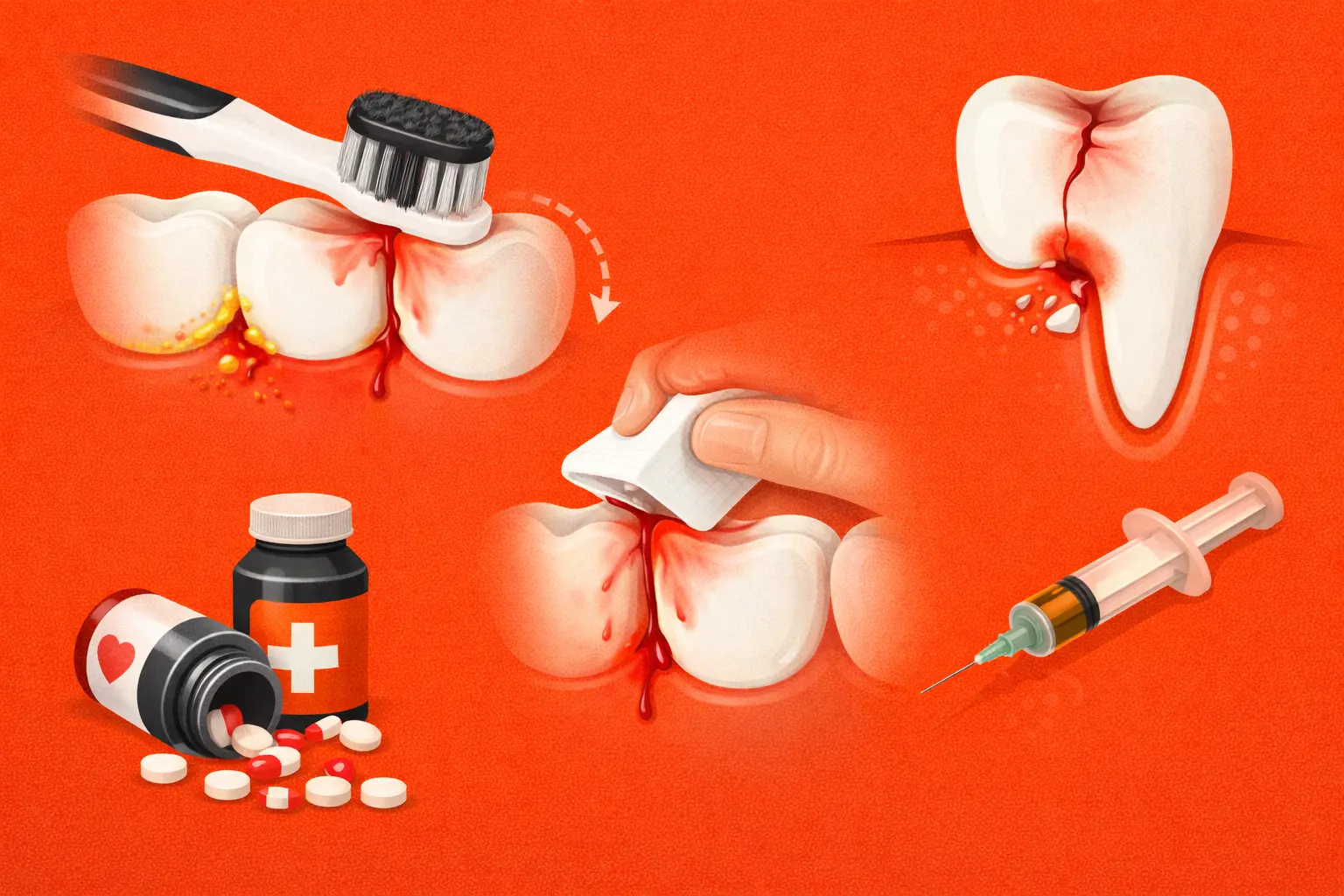
To treat it properly, you need to understand why it’s happening. Common causes include:
-
Accidental Trauma
Sports injuries, falls, or accidents can cause sudden bleeding in the gums or teeth.
-
Aggressive Brushing or Flossing
Using a hard-bristled toothbrush or over-flossing can cause cuts and bleeding.
-
Gum Disease (Gingivitis or Periodontitis)
One of the most common causes of chronic bleeding gums. Often linked to plaque buildup, poor oral hygiene, and bacterial infections.
-
Dental Procedures
Recent tooth extractions, fillings, or cleanings can cause temporary bleeding.
-
Medication or Health Conditions
Blood thinners, clotting disorders, diabetes, or vitamin deficiencies (especially C and K) may lead to persistent gum bleeding.
What Not to Do
Many people make mistakes that worsen the bleeding. Avoid the following:
- Don’t apply aspirin directly to the gum – it can cause chemical burns.
- Don’t rinse too often or too vigorously – it may dislodge blood clots.
- Don’t smoke or drink alcohol – both delay healing.
- Don’t brush the area for 12 hours – give the tissue time to heal.
When Is Gum Bleeding a Dental Emergency?
Bleeding that lasts longer than 30 minutes, or returns multiple times a day without an obvious cause, requires professional attention. Watch out for:
- Gums are bleeding without pressure or injury
- Bleeding that worsens over time.
- Swollen or infected gums
- Loose teeth or pain when biting
- Recent dental work followed by severe or prolonged bleeding
- Bleeding accompanied by a fever or pus
If you experience any of the above, book an emergency dental appointment immediately. In cases where an infection is involved, a root canal may be necessary to treat deeper damage.
Get Immediate Dental ReliefLong-Term Fix: How to Prevent Gum Bleeding from Happening Again
Stopping the bleeding is step one — preventing it from returning is just as important.
Improve Oral Hygiene
- Brush twice a day with a soft-bristled toothbrush
- Use fluoride toothpaste
- Floss gently but regularly
- Rinse with an alcohol-free antiseptic mouthwash.
Visit Your Dentist for Deep Cleaning
- If bleeding is caused by plaque or tartar, only a dentist can fully remove it.
- A deep clean (also known as scaling and root planing) is often required to treat gum disease.
Review Your Health and Medications
- Some conditions and medications can increase the risk.
- Talk to your GP or dentist if you suspect your medication is a factor.
Get Enough Vitamins
- Deficiency in vitamin C (important for tissue healing) and vitamin K (essential for blood clotting) can cause gum bleeding.
Fast, Reliable Emergency Care — Even at Night
If you’re bleeding and worried, don’t wait for regular hours. Night and Day Emergency Dentist is open when others aren’t — including:
- Late evenings
- Weekends
- Bank holidays
We Provide:
- Immediate relief for bleeding gums and tooth injuries
- Same-day appointments
- On-site x-rays and treatment
- Gentle, judgement-free care
- Transparent prices
FAQs – Stop Gum Bleeding
Conclusion
Bleeding gums or a tooth injury can feel alarming, but quick action makes all the difference. Start by rinsing with salt water, apply steady pressure, and use a cold compress — but don’t rely on home remedies alone. If the bleeding doesn’t stop or you’re in pain, professional help is essential.
At Night and Day Emergency Dentist, we’re open late, every day of the week, to treat dental emergencies exactly when you need us. Don’t wait and hope it stops — call or book now to get fast, expert care and stop gum bleeding safely.
